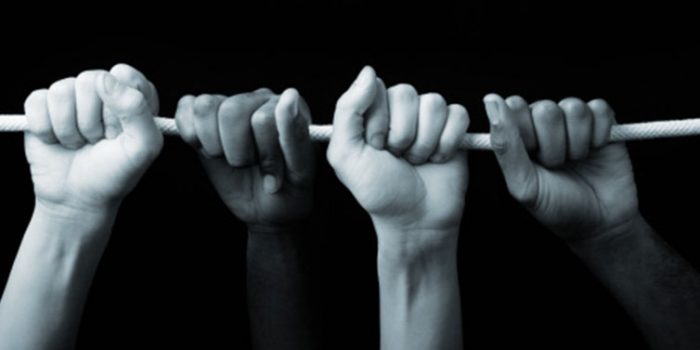True Equality: Can We Achieve It?
Juan Teira | On 15, Apr 2019
Merriam-Webster defines equality as “the quality or state of being equal,” but how can we all be truly equal in our daily lives? We have all seen the horrors of inequality: poverty, war, racism, and so on. It is shocking for us to realize that our modern society is not equal. We are still in a constant uphill battle in order to find true human equality among all people.
Many have tried to reform their ways of thinking but this has not been proven to be a viable solution. Whenever we try to overcome our differences, we ultimately relapse into an even worse state than we were in before. Does this mean that we as humans are doomed to suffer and never reach progression, or are we finally able to master the formula of equality through our mistakes?
History has shown us that we have made many slow steps towards equality. Whether it be our own American Revolution to the United Nations’ Universal Declaration of Human Rights, we are more equal now then we were before. Our human rights have been guaranteed to us by our government and we are all respected more now.
However, progression does not constitute true equality because there are people who are still suffering injustices in this very country where they are “promised” a prosperous life. Hatred still runs rampant among many Americans, even with the progress that we have made thus far. It is still a fact of life that many have to adjust to once they immigrate to this country. This progression cannot be characterized as true equality while many suffer inequality on a daily basis.
Another argument can be made that through our many mistakes, we are able to create a solution by working through the problem. By seeing our mistakes, we can correct our behavior and ensure that it will never happen again. To put this in a historical context, the Cuban missile crisis caused extreme trouble and worry for the United States and the Soviet Union because both sides were on the brink of a nuclear war. Both sides saw what would occur if they would go to war and they came together to find a true solution. If not for this solution, the entire world as we know it would have been dry and absent of all life. We were actually able to look at each other as human beings and not as warring states, competing against one another for power. Seeing past our differences created a solution that worked for the time being, but can it ever be permanent?
Equality is a hard subject for us to comprehend, but it is necessary in order to create a sense of belonging. At times, we make progress with the repressed in our society, but at the same time, we also push them away. We then find ourselves where we started out in the first place, and this has reigned true throughout human history.
It is also worthwhile to mention that history has shown us looking at our mistakes and coming up with viable solutions and creating equality. The only problem with these solutions is they are not permanent. People are only equal for as long as there is attention on the subject. Once the spotlight on the subject is removed, inequality reigns again.
Even though inequality is relevant now, there may come a time in the future where we will see past our differences and come together to form solutions for humanity and for the generations subsequent to them.
-
A great piece of writing! It is incumbent on all citizens of a democracy to question and call out those who oppress the rights of others especially our government. Though we live in the greatest country in the world, it is not perfect. We can only move toward perfection through open/honest dialogue, active listening,critical thinking, and activism. Patriotism demands the aforementioned actions of us. Mark Twain on Patriotism, “Patriotism is supporting your country all the time, and your government when it deserves it”.


Comments